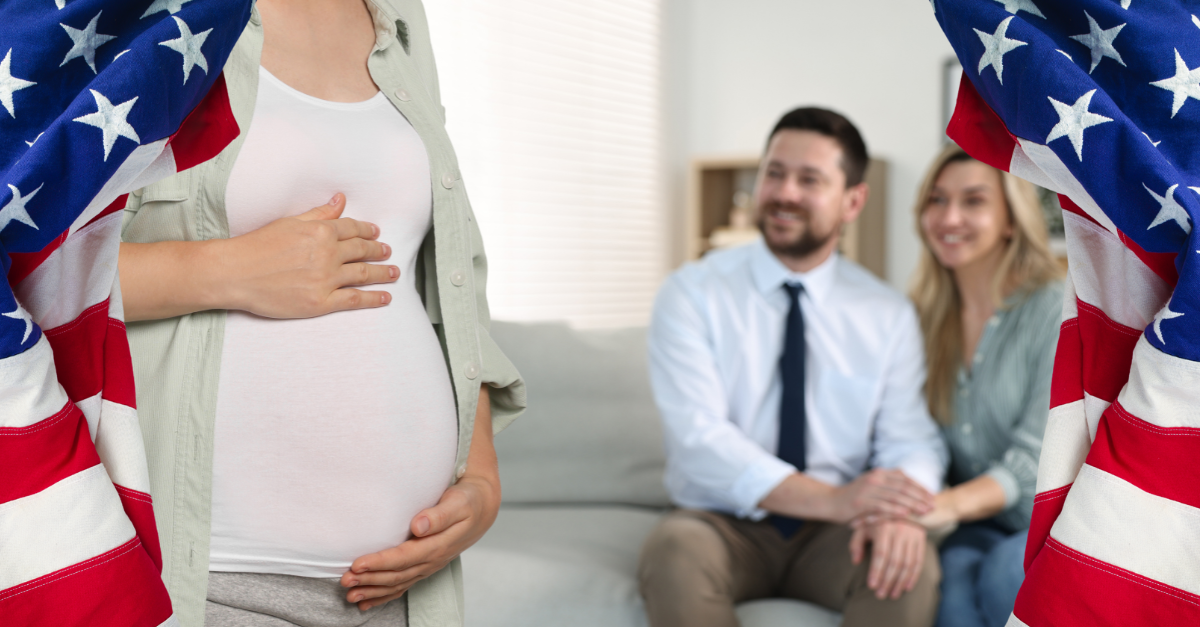Three Australian jurisdictions – NSW, ACT & Queensland – have laws criminalising overseas surrogacy. However like the long outdated provisions criminalising abortion in NSW, these are laws which have never been prosecuted. In fact even when the rare case has been referred to the Director of Public Prosecutions, they have declined to take action.
There is a common misconception that Australians engaging overseas are required to obtain advice from an Australian lawyer. In fact there is little effective role an Australian lawyer can play, given overseas contracts are invalid in Australia. The key reason you might engage an Australian lawyer is to investigate recognising you as the legal parent.
Unfortunately however, recent High Court rulings have produced a stalemate in regards to any recognition of legal parentage for children born via overseas surrogacy. (For those concerned about this, you might write to your local MP). Parents can instead apply for legal guardianship of their children, though few in practice even do this, given making a will naming your surrogate-born child(ren) can provide effective protection.
In contrast, domestic altruistic surrogacy has significant legal hoops to jump through at both the beginning and end of your surrogacy journey. At the front end of the process, the laws in each state and territory mandate that parties have received legal advice – from separate lawyers.
Australian state laws do not provide for legally binding contracts between surrogates and their recipients and while this spooks some intended parents, experience has shown that the level of counselling required in the Australian context is so rigorous, that surrogates are never in a headspace where they would consider keeping what they always consider ‘your’ baby.
Surrogacy and donor arrangements involve huge amounts of trust by all parties. Nonetheless, understanding your rights and responsibilities as a surrogate or an intended parent is crucial, as is drafting a meaningful agreement that sets down the expectations of all parties.
It is essential to work with lawyers with sound experience in surrogacy arrangements for two reasons. One: it will save you money, given a lawyer who is new to the area will end up charging you for all their ‘research’ time. Two: experienced lawyers will be able to assist you in with scenarios that may be complicated.
As an example, it is very common for surrogates and recipient parents to be living in different Australian states each with different laws, Sometime the egg donor or embryos are in a third state. More complex still, as awareness of surrogacy rises, I am seeing increasing inquiries from Australians wanting to work with a best friend or sister as a surrogate who lives overseas – sometimes it is the surrogate who lives here and the best friend or relative is offshore.
Common questions I hear include – Can my sister come to Australia for the IVF? Is it legal for the counselling to occur by Skype? Does my surrogate need to be an Australian citizen for us to effect transfer of parentage? if the birth occurs overseas, can I still be recognised as the legal parent?
This is such a specialised area that there are only around a dozen lawyers nationally with the relevant experience to help you navigate the Australian legal system.
Stephen Page at Page Provan in Brisbane, Ben Sayer at Sayer Jones in Melbourne and Kate Bishop at Culshaw Miller Lawyers in Adelaide are three of these. Ben has represented altruistic surrogacy clients around the country for over a decade. Kate has acted for both intended parents and surrogates in altruistic surrogacy matters. Stephen is Australia’s leading legal commentator on surrogacy reform. All take great pride in having played a part in not only helping form families, but supporting the charity Surrogacy Australia in its work through sponsorship of the upcoming October seminar series. In Melbourne, Brisbane and Adelaide this month, these legal advocates will share case studies to illustrate just how ensure you don’t get tangled in the red tape of surrogacy law.


